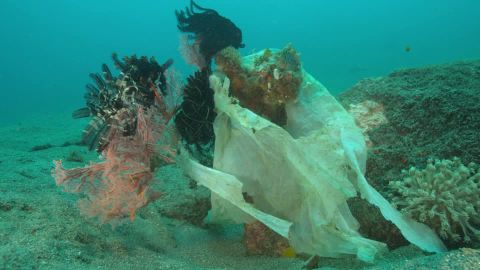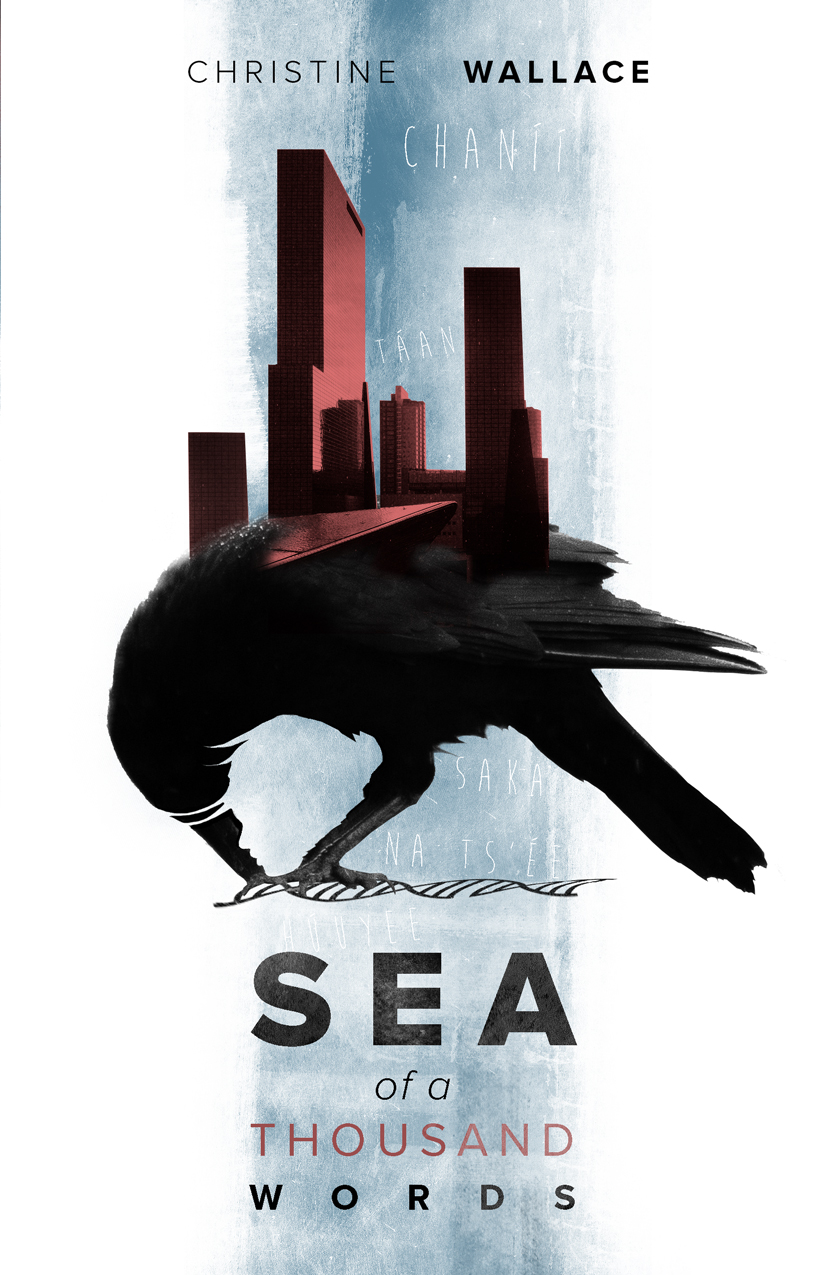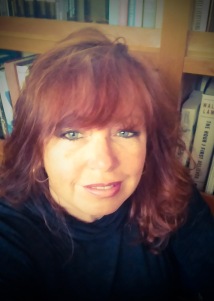Speculative fiction, or “spec-fi” as the genre is sometimes called, is a unique category; technically, it is not sci-fi, but not quite narrative fiction either. The dictionary definition of speculative fiction can be wide enough to encompass fantasy, super-hero fic, horror, utopia and dystopic fiction. Add to this large umbrella, the category of climate fiction, (popularly referred to as “cli-fi”), and you’ve got yourself a real niche audience in which to cater to when crafting your story.

Back in 2016, as I was working on Sea of a Thousand Words, I had no inkling that our global political situation would change so dramatically–and so rapidly, as it did later that same year.
 My manuscript revolved around a hypothesis that a world forced to manage shrinking resources and increasing conflict would create nationalist, isolationist movements the likes not seen since the Great War, perhaps far more extreme. To create this setting, I imagined that food was scarce due to warming oceans, over-fishing and significant loss of arable land. A wave of worldwide climate migration soon prompted nations to close their borders to the refugees, in some cases (as in North America), using mercenary tactics to prevent penetration. I took care to keep the premise rooted in a reality that was still recognizable–not too sci-fi–by moving the date only fifteen years into the future. Even so, I added the presence of AI, high-tech drones and automated vehicles as these technologies are already on the cusp of our reality. Given my fascination with the Cascadia megaquake prediction, I penned that scenario into the backstory as well, giving my heroine a poignant incitement for her handicap. Dystopian future? Perhaps, however I would counter with the fact that unless human behavior markedly alters course, most of this speculation is a forgone conclusion.
My manuscript revolved around a hypothesis that a world forced to manage shrinking resources and increasing conflict would create nationalist, isolationist movements the likes not seen since the Great War, perhaps far more extreme. To create this setting, I imagined that food was scarce due to warming oceans, over-fishing and significant loss of arable land. A wave of worldwide climate migration soon prompted nations to close their borders to the refugees, in some cases (as in North America), using mercenary tactics to prevent penetration. I took care to keep the premise rooted in a reality that was still recognizable–not too sci-fi–by moving the date only fifteen years into the future. Even so, I added the presence of AI, high-tech drones and automated vehicles as these technologies are already on the cusp of our reality. Given my fascination with the Cascadia megaquake prediction, I penned that scenario into the backstory as well, giving my heroine a poignant incitement for her handicap. Dystopian future? Perhaps, however I would counter with the fact that unless human behavior markedly alters course, most of this speculation is a forgone conclusion.
Once my novel’s world had been developed, I needed to look for a credible motivation for my main characters’ quest… mission…”thing“. To put it in Tolkien geek-speak, I needed a ring to take to Mordor. The answer to that obstacle came in the form of my daughter’s AP Bio class. She called from school one morning and in an excited whisper confided to me that she’d located the One Ring. “It’s called the CRISPR-CAS 9 enzyme mom and it’s fricking cool!” Cut to several weeks of online research later and a pile of her classmates’ presentation papers and I was off to the races. I had my primary plot point.

Currently, the CRISPR technology we possess is simple enough that students can create it in their highschool science labs. Scientists have successfully edited genes in fruit flies and are working on modifications to mosquitos that will impact malaria problems in significant portions of the world. At this point, the ability to perform human genome editing is very limited. The theory is there, we just haven’t quite finessed the techniques–yet. With that knowledge, I devised a scenario whereby a Chinese scientist working in a top secret laboratory was creating an aerosol disbursement method to administer the CRISPR enzyme to lung cancer patients–with the understanding that in 2033, genome editing advancements had progressed far enough to work on humans.
By the fall of 2016 I was finished with the manuscript. I spent October putting the finish touches on various accents and the languages used by some of the first Nations characters. Then came the US election. I shan’t go into my reaction in regard to that outcome. If you’ve read the book or follow me on social media, you wouldn’t need to guess. I confess that I did hesitate before submitting the manuscript to publish, wondering if I’d been too optimistic in my futurist’s world view. Shortly after the election and on the heels of the Brexit vote, I read an article about the International Scientific Community’s stance on gene editing and the negative results that could arise without oversight. Basically, they realized that, as with human cloning, just because one can do something does not mean that one should do it. Sound familiar? The fascinating detail that arose from the meeting was China’s policy toward the suggested CRISPR regulations, which amounted to a, “Yeah nah, y’all go on ahead with that but we’re good thanks.” In fact, the Chinese scientists admitted that they were already working on human embryos. This news caused me to pause and consider, have I pushed technology far enough for fifteen years into the future?
More news came to the social media forefront as my manuscript was in its final revision stage: That of refugees fleeing horrific conditions in Syria, and the less-than-welcoming reception they were being given on the world’s stage. Meanwhile, the new administration in Washington DC was doing battle against the ACLU and numerous state Attorneys Generals as to the fate of immigrants seeking residency in the United States. The travel ban on Muslim countries had begun to deepen the divide in our country into vastly differing camps and Trump’s promise to “build the wall!” had galvanized his base. Hate crimes were on the rise and white supremacists were no longer relegated to the shadows. I recognized the specter of HighTower within the Trump White House.
My novel was released in the spring of 2017 and since publication has received critical praise and national recognition. In January of this year I traveled to Thailand, spending three months diving in the Gulf of Thailand and sailing in the Andaman Sea. While both underneath and atop the ocean surface, I was alarmed by the damage to coral reefs, coastal shorelines and fish populations. I wondered again if my speculations on the environment were too optimistic. Thailand is a beautiful country with lovely, inviting people, however their fishing industry is one of the world’s most abusive. The more I learn, the less hope I have that we’ll make it to the year 2033 before depleting our ocean food supply.

The news isn’t all dismal though, since the conception of Sea of a Thousand Words, I’ve witnessed countless episodes of bravery and decency. The Seattle Women’s March was led by the Salish people through the streets of the city. I was quite emotional when I got to see the parade from the forefront, having been positioned some 200,000 people back in the midst of the masses with my daughter and our friends. The drums and songs from the Salish people lent a special urgency and relevancy to the women’s march that no other organization could. I imagined that Reba and Ooligan would have been at the front of that group with their fists raised high.

The recent protest movement started by teens in the wake of the Parkland school shooting has stirred the revolutionary spirit in a lot of us jaded 70’s protesters. My faith in the youth of our country is soaring and I feel certain that, should things in real life prove as grim as my novel’s world, there would be many Dots, Taan’s and Lilu-ye’s appearing when they were most needed.
It’s been truly wonderful and at times, surreal to watch the events and scenarios of my speculative fiction novel occur in real time. There are periods when I feel a little like the writer Emma Thompson plays in Stranger than Fiction.
As I start building the scenes for SoaTW’s sequel, I’m highly attuned to the events I see unfolding every day and work to suppress the voices that whisper dystopia is our world’s only outcome. I search out the uplifting stories to flavor the next novel and inspire my writing and I try like hell to become more comfortable with the realization that speculative fiction–even science fiction plot devices are occurring faster than we writers can imagine them.
~ Chris


 My manuscript revolved around a hypothesis that a world forced to manage shrinking resources and increasing conflict would create nationalist, isolationist movements the likes not seen since the Great War, perhaps far more extreme. To create this setting, I imagined that food was scarce due to warming oceans, over-fishing and significant loss of arable land. A wave of worldwide climate migration soon prompted nations to close their borders to the refugees, in some cases (as in North America), using mercenary tactics to prevent penetration. I took care to keep the premise rooted in a reality that was still recognizable–not too sci-fi–by moving the date only fifteen years into the future. Even so, I added the presence of AI, high-tech drones and automated vehicles as these technologies are already on the cusp of our reality. Given my fascination with the
My manuscript revolved around a hypothesis that a world forced to manage shrinking resources and increasing conflict would create nationalist, isolationist movements the likes not seen since the Great War, perhaps far more extreme. To create this setting, I imagined that food was scarce due to warming oceans, over-fishing and significant loss of arable land. A wave of worldwide climate migration soon prompted nations to close their borders to the refugees, in some cases (as in North America), using mercenary tactics to prevent penetration. I took care to keep the premise rooted in a reality that was still recognizable–not too sci-fi–by moving the date only fifteen years into the future. Even so, I added the presence of AI, high-tech drones and automated vehicles as these technologies are already on the cusp of our reality. Given my fascination with the















 t purchasing my novel until I mentioned it’s cli-fi genre. “Oh wow, we can’t stock enough titles in that section these days!” He pulled the title up on Ingram’s site and purchased two copies while I stood at the desk, then asked if he could personally buy a signed book directly from me.
t purchasing my novel until I mentioned it’s cli-fi genre. “Oh wow, we can’t stock enough titles in that section these days!” He pulled the title up on Ingram’s site and purchased two copies while I stood at the desk, then asked if he could personally buy a signed book directly from me.






 Eubank. We’ll be sharing a podium for the evening as I discuss the process of writing the novel and Gray reads a passage from one of the pivotal scenes. I’m excited to hear it read aloud–and by such a talented actor to boot. The novelty of hearing my characters voices from a seasoned stage actor such as Gray will be a real treat.
Eubank. We’ll be sharing a podium for the evening as I discuss the process of writing the novel and Gray reads a passage from one of the pivotal scenes. I’m excited to hear it read aloud–and by such a talented actor to boot. The novelty of hearing my characters voices from a seasoned stage actor such as Gray will be a real treat.



 It is great to hear from everyone who has sent their feedback. Your cards, letters and emails have been such a treat, and to hear that my characters are loved by others is more than gratifying. It quite simply inspires me to get back to work and find more adventures in which to immerse them. (Remember, posting your comments on Sea of a Thousand Words Amazon’s page as well as sites like Goodreads helps to spread the word). I’ll continue to post more reader remarks, links and sources that I get from fans of the book. Please feel free to contact me with your insights or opinions on the subjects.
It is great to hear from everyone who has sent their feedback. Your cards, letters and emails have been such a treat, and to hear that my characters are loved by others is more than gratifying. It quite simply inspires me to get back to work and find more adventures in which to immerse them. (Remember, posting your comments on Sea of a Thousand Words Amazon’s page as well as sites like Goodreads helps to spread the word). I’ll continue to post more reader remarks, links and sources that I get from fans of the book. Please feel free to contact me with your insights or opinions on the subjects.